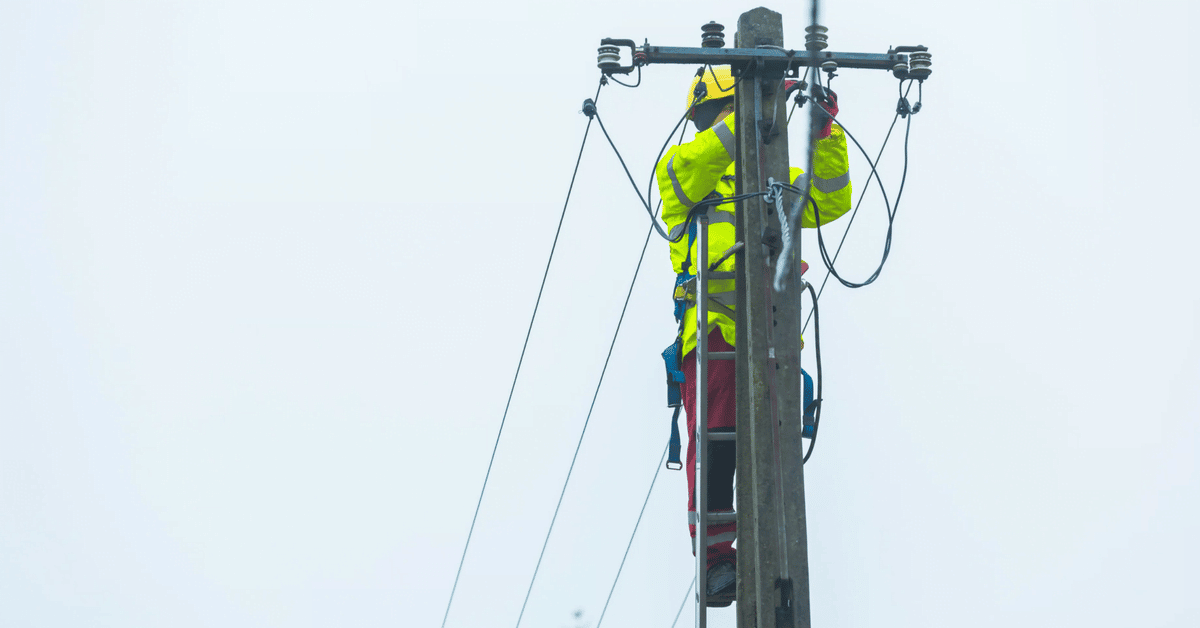Every day, power line workers risk electrocution, falling and strangulation. It’s no wonder they’ve made the list of most on-the-job fatalities in the U.S.

By definition, a career in the electrical field means exposure to hazard. Safely mitigating that hazard, both for the public and for the power line workers who scale utility poles to inspect and repair power lines, is what utility and electric companies are tasked with.
So it’s no surprise to find electrical power line work has made the U.S. Bureau of Labor Statistics’ latest list of fatal occupation injuries among civilian jobs.
Power line workers face 26 electrocutions annually
The Bureau’s report puts the fatality rate of “electrical power line installers and repairers” at 20.5 per 100,000 workers, with an average of 26 annual electrocutions.
A CBS News story about the list notes that:
“Both electrical and telecommunications line workers have suffered fatalities from electrocution, falling and even strangulation.”
As an electrocution attorney, I’m sadly too familiar with the hazards from this work. I’ve represented many electrical line workers who have suffered shock injury, electrical burns and mechanical trauma. I’ve represented the families and estates of these men and women when they are electrocuted.
Power line workers deserve to be protected, not ignored
A power line worker is a demanding job. The Bureau lists the average annual salary at $68,010 (as of May 2016), and notes that:
“Line workers encounter serious hazards on the job, including working with high-voltage electricity, often at great heights. The work also can be physically demanding. Although most work full time during regular business hours, some work irregular hours on evenings, nights, weekends, and holidays when needed.”
These are brave men and women performing important and dangerous work. Our modern world cannot function without electricity. Without our modern electrical grid and electrical power infrastructure, hospitals and schools can’t function. Food becomes spoiled. Life changes dramatically and harshly.
When there’s a natural disaster, power line workers are often among the first to the scene. They regularly clear the way so that first-responders can assist with rescues, fires, traffic controls and other dangerous situations. They put their health and safety at risk, but the companies they work for put them even more at risk with our dangerous and aging infrastructure of power transmission and distribution.
The next time you see a line worker atop a pole fixing or reinstalling a wire, take a moment to appreciate what these men and women do.
